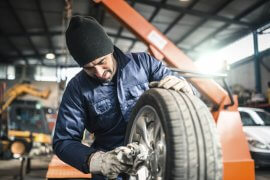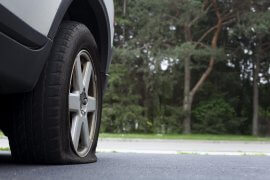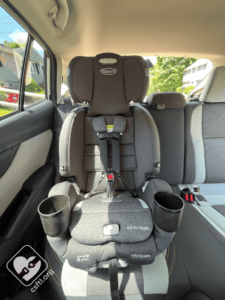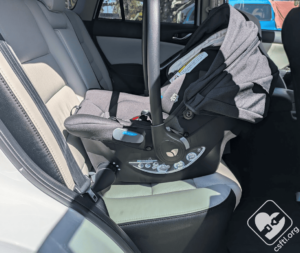Fact or Myth: Over-Inflating Your Tires Increases Gas Mileage

You may have heard somewhere that over-inflating your vehicle’s tires can increase your gas mileage, but is that a fact or a myth? As with just about anything that can fall into either category, detractors on both sides will often contest the validity of the opposing point of view. While some people swear it works, others will label it as nothing more than bunk.
However, you first have to realize that your tires’ manufacturer has set a maximum psi to insure your safety on the road and the longevity of their tires. Playing with what the manufacturer recommends can be tricky – if not risky.
The door placard on your vehicle indicates the recommended psi in all four tires for optimum performance. Meanwhile, the sidewall shows the maximum pressure for the tires that should not be exceeded. Should you have a wreck and your car insurance company determines the accident was caused by surpassing the maximum pressure, you could have difficulty collecting on your claim.
Not recommended by tire manufacturers
According to Mark Cherveny, manager of global regulations, standards and compliance for Goodyear Tire & Rubber Company, “You can increase fuel economy by increasing air pressure, but the improvement would be marginal at best and Goodyear definitely does not recommend doing it.”
Individuals who insist on pursuing their strong belief that over-inflating their tires works for them forget or prefer to ignore the fact that car and tire manufacturers work side by side to develop tire pressures that are optimal for each type and size of vehicle.
These tire recommendations are the result of extensive test data. “What you end up with,” says Cherveny, “is a tire/vehicle combination that maximizes a number of tire-performance characteristics, such as ride, comfort, handling and tread wear.” Furthermore, according to Cherveny, “If you change the inflation pressure, you affect those attributes because you change the ‘footprint shape’ of the tire.”
In other words, when you over-inflate your tires, they bulge in the center of the tread, creating a much smaller, skinnier contact point with the asphalt. But, while this can translate into less rolling resistance and increased mileage, it can also lead to an increase in tire wear and risk of impact damage should you hit a curb or pothole.
Additionally, it can affect the overall ride of your vehicle, making it hard and potentially teeth-rattling with every bump, not to mention greatly decreasing your cornering ability and traction on wet pavement – all safety risks. With that in mind, an accident from loss of control will greatly affect your auto insurance rates.

Under-inflated tires
One fact worth noting comes directly from the U.S. Department of Energy, which has proven that under-inflated tires have a negative effect on your fuel economy. The department states that for every 1-psi drop in pressure, you can expect your gas mileage to lower by 0.4 percent. And, that is not a myth.
Also, because tires can lose about one to two psi per month through natural air loss from regular driving, you should check your tires’ pressure at least every month. In colder weather you can expect to lose one to two psi for every 10-degree drop in temperature.
In warm or cold weather, to get an accurate tire pressure reading, your vehicle has to have been parked for three hours or so. If you just pulled into a gas station to fill up, the rule of thumb is to subtract two or three psi from the reading due to the tires being warm.

Need more proof?
Popular Mechanics conducted their own tire inflation test using a Honda Fit. Raising the pressure from the recommended 32 psi to 45 psi on an 800-mile road trip from Los Angeles to Phoenix and back again with the pressure reset at the normal level – the recorded mpg was virtually the same.
So, next time your buddy or neighbor suggests he’s getting an extra two miles per gallon, you may also want to consider this – how much sooner will his tires wear out than yours? At the price of new tires these days, you’re comparing a few cents to big bucks. And, that’s a fact.
Properly inflated tires can help you get better mileage and prevent blowouts, but you still will need collision protection. You can get great protection and auto insurance coverage options through Freeway Insurance. Get a FREE car insurance quote online or give us a call to save big on great coverage.







